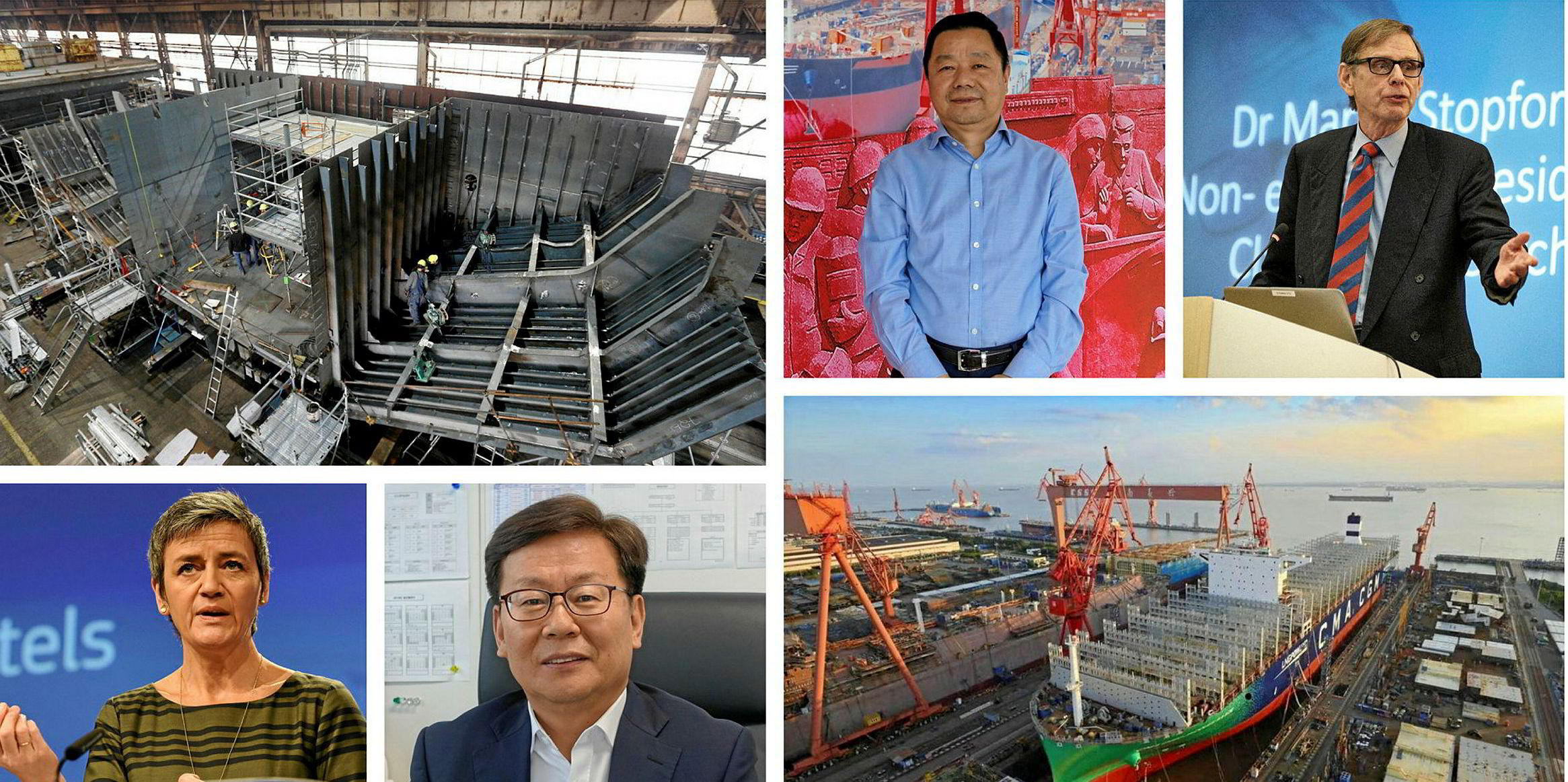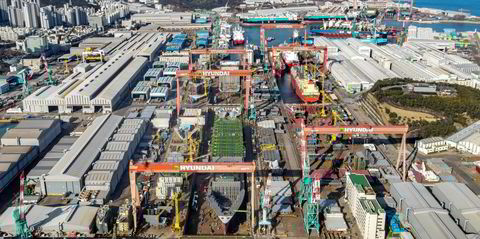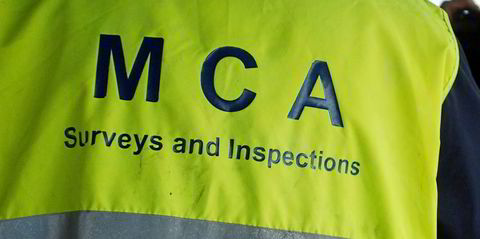The coronavirus pandemic will lead global shipbuilding will slump by 10% over the next five years, compared with the last half decade, shipping analyst Maritime Strategies International (MSI) predicts.
MSI analyst Stuart Nicoll said that the loss of confidence and reduced vessel demands will chop contracting to just over 30m gt in 2021 and will wipe off 50m gt in aggregate newbuilding activity over the next five years.
“This will be 10% lower than aggregate activity in the last five years, heaping further pain on an already shrinking shipbuilding industry,” he said in a research note.
He said the downturn would push the next shipbuilding peak back by several years.
The comments chime with a prediction last month by Martin Stopford, the president of Clarksons Research. Stopford forecast that yards would face a sharp downturn in newbuilding requirements over the next two to three years but that he saw the industry bouncing back in the longer term.
Substantial demand would emerge from trade growth, slower operating speeds, and the re-engineering of vessel systems in response to climate change and smart shipping, Stopford said. He added that he foresaw peak demand emerging in the mid-2030s approaching 150m to 250m dwt a year.
MSI accepts there is little direct evidence yet of the effect of the crisis on shipbuilding, but forecasts a sharp reduction in global GDP levels in 2020 will translate into a 3.4% fall in aggregate trade volumes across the main cargo shipping sectors.
“It now seems possible the pandemic could have a similar impact on the next decade as the economic crisis of 2008-2009 did on the last,” MSI said. The firm expects average one-year time charter rates for the across the shipping industry to collapse next year to levels below those seen in 2016.
Despite the current tanker boom, Nicholls said: “It is the oil tanker sector that we expect to be most severely impacted in 2021, with earnings falling back to levels last seen in the early years of the last decade.”
MSI believes dry bulk and containership earnings will hit bottom out in 2020 and remain suppressed through next year, but remain above the severe lows of 2016. Gas carriers will fare relatively well, the firm added.
Depressed trading markets will result in a severe contraction in the orderbook by the end of 2021, MSI concludes with a “major correction to prices” emerging as contracting restarts in the second half of this year.
“Reductions of up to 20% have been suggested to kick start the sector but we anticipate a steadier reduction, with average prices hitting bottom in the first quarter next year 13% below levels in the first quarter of this year,” the analyst said.






